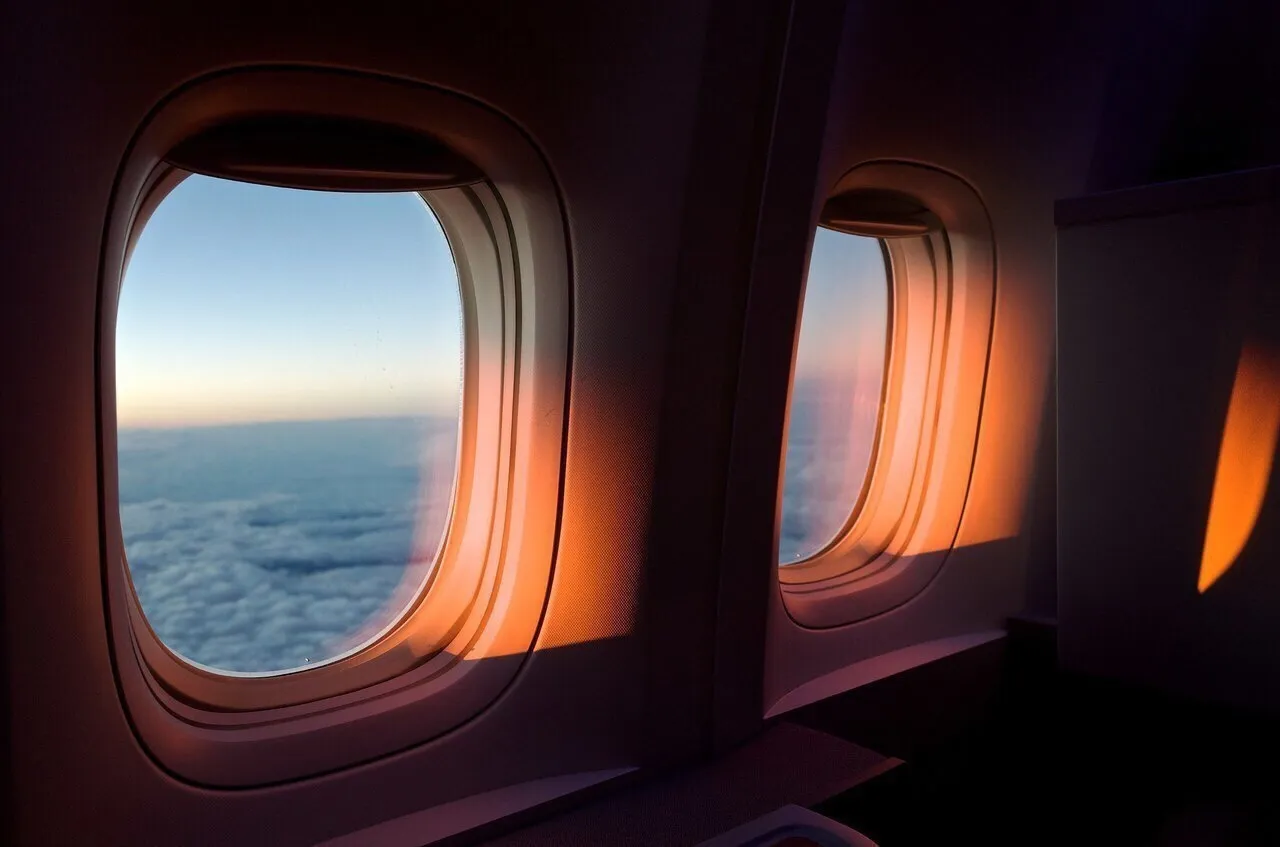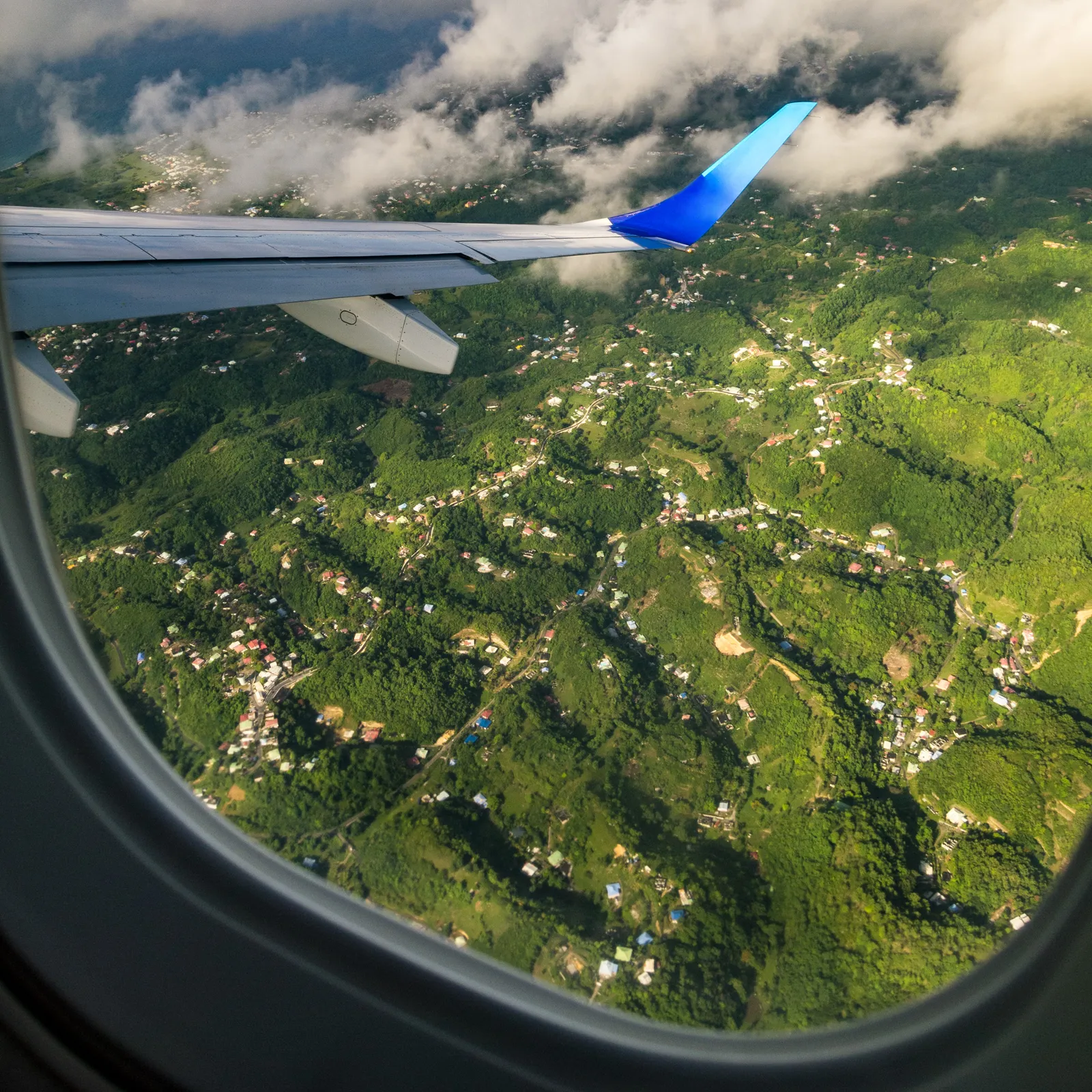Here's how to think about jet trails when traveling long distances, according to sustainability editor Juliet Kinsman and aviation forecasters.

Travelers who are concerned about the environment are ready to learn more about how our flight decisions affect the environment, and the trick is to fly less and fly well. A plethora of blog postings that are claptrap appear when you search for "eco-friendly airlines," since no flight is always going to be actively improving the environment, right? But if we have to travel at a height of 35,000 feet, there are methods to be a more responsible explorer. While we should applaud the aviation companies for spending more on renewable energy and developing technologies to lessen their long-term reliance on fossil fuel, there is still a long way to go before we can fly guilt-free. Here are some tips for responsible wandering.
1. Fly economy
Although it's hard to schedule a flight in advance based on this estimate, more persons per square meter imply less fuel is used to move each person. Selling more seats also results in lower emissions per passenger. Additionally, there is a depressing figure from a study by Ecological Economics. According to a study, the wealthiest people in the UK consume more energy flying than the poorest do in all other aspects of their life. It would be a little step in the right direction if passengers opted to travel in coach rather than business or first class.
2. Take a direct flight
The most polluting parts of a flight are the takeoff and landing. If you can, avoid connecting flights and short-haul travel.

3. Use a hybrid
For one leg of the trip, substitute a high-speed rail for an airplane. It makes sense to avoid domestic flights wherever feasible and take public transportation instead. Through our travel trends feature, we advise hybrid travel.
4. Favor new fleets
A carrier's engine is frequently greener if it is newer. Airlines with more modern fleets provide cleaner, more effective methods to get you from A to B. When making reservations, it's a good idea to be nerdy and avoid using outdated 747 aircraft because they use a lot more fuel than modern 787 or A350 aircraft.

5. Find environmentally friendly airplane fuel
Sustainable aviation companies have long made investments in renewable fuels. But not all biofuels and SAFs (sustainable aviation fuels) are made equal, and many formulations have drawbacks. As always, we must consider the trade-offs. We are still a long way from having planes run on old chip fat and other trash. Who is utilizing what is still not transparent? By 2035, a commercial airplane powered by hydrogen and emitting zero emissions will be introduced, according to Airbus. However, more abrupt modifications are required sooner.
10 ways to lower your #flying footprint in 2023https://t.co/rys9vl1yPv #carbonfootprint #sustainablenews#atravelcompanion
— A Travel Companion (@aTravelCompanio) January 27, 2023
1. Fly economy
2. Fly direct
3. Go hybrid
I would add: don't fly to #WEForum #Davos in a private jet! pic.twitter.com/IbxqAufwAR
6. Offset
Of course. You shouldn't, however, assume that it fully makes up for your emissions as we should be lowering greenhouse gas emissions as a whole, not simply making up for them. When calculating emissions to offset, purchasing emission reductions produced elsewhere is typical. However, keep in mind that not all plans are as honorable. We run into trouble when airlines claim that they are purportedly mitigating the effects of your journey, practically pushing the traveler to view that excursion as beneficial for the environment. It's an improvement over nothing, but it's not a fix. Watch out for certifications that demonstrate the benefits of offsetting. If anything is Verified Carbon Standard (VCS) certified, it is completely transparent and publicly trackable. A Gold Standard mark for offset programs is usually positive since it guarantees that the results have had measurable effects on UN Sustainable Development Goals. In addition to health or gender equality incentives, this can also include water benefits and green energy certifications.
7. Use the Greener Choices option on Skyscanner
Although the computation is still based on rather broad parameters, flights with fewer emissions are indicated with a Greener Choices label when searched using this meta-search tool. It is encouraging that Skyscanner has lately tested new strategies for giving travelers great alternatives and information on emissions. When given the data, 78% of travelers opted for the "greener" choice.

8. Fly less for business
Historically, business travelers made up the bulk of passengers. At least we may be thankful that more and more people are dialing in more via their computers, or at least mixing lengthy remote working vacations with work excursions. We should design workstations where we blend work with pleasure by making short detours for one event or meeting.
9. Honor the nice guys
Which tourism organizations are making more of an effort to adhere to the Paris Agreement's call to reduce carbon emissions? "Although it will take some time before airlines are considered to be fully carbon-friendly, there are some amazing steps already underway, "Paul Charles, the CEO of the PC Agency, a travel consultant that has long served forward-thinking clientele, says. The first airline in the world, Finnair, which is testing electric aircraft in the Nordic region, has added to its company's articles of association, its fundamental mission, that it would prioritize minimizing the adverse consequences of its operations on the environment. Remarkably, there seems to be more and more discussion on electric planes, which is positive. But in practice, the only vehicles that can travel any distance on a battery at this time are two- or four-seaters. We must press companies like Airbus and Boeing to invest more in developing new technology.
Most airlines have agreed to make up for their emissions by 2027. However, environmentalists say that this means they are keeping up with the growth in emissions. For instance, Regional Air and its East African airline network have signed the petition Tourism Declares a Climate Emergency. But rather than taking spectacular instant action, such commitments serve as evidence of significant intention. Charles, a former director of Virgin and a proponent of the Continuous Descent Approach, applauds British Airways for regularly using this technique. It prevents flying so long in circles above the ground and cuts down on fuel consumption when landing. He also thanks Turkish Airlines for providing space for a new facility in Istanbul where researchers are cultivating algae for use in aircraft fuel. "Airlines are gradually redefining what is feasible to contribute to a more sustainable future.
10 ways to lower your flying footprint in 2023 - Condé Nast Traveller https://t.co/eke8SeMhVw pic.twitter.com/uh3lXOdXTf
— Economia Ecológica (@Eco_Economics) January 26, 2023
10. Encourage government action
Since the Second World War, aviation kerosene fuel has not been subject to tax in the UK, which many consider being an unjust exemption. By investing in KLM-Air France, the French government has improved control over the emissions from its carrier and has committed to halving domestic flight emissions by 2024 by eliminating short domestic routes that can be readily supplied by trains.

How else might the sustainability of aviation be evaluated?
Gordon Smith, an aviation specialist, advises including an eco audit in our planning process. "You may have no problem spending hours searching the internet for the greatest bargain, so why not use a little portion of that time to learn what your carrier is doing to improve its operations? You'll probably be astonished, says the expert in the field. Nearly every airline now discusses how they see their environmental credentials, according to Smith, who notes that the public narrative has evolved to this point. The sad fact is that there is a lot of greenwashing going on, with many corporations waiting for technology to catch up before they clean up something that may take decades, despite the assurances made above. He is, nonetheless, also upbeat. "In light of this, it's simple to become dejected, but certain airlines are making more effort than others, and it's critical to acknowledge this. Keep an eye out for people who are proactive in the SAF space "He claims. It includes Virgin Atlantic, which this year will launch the first transatlantic 'net zero' flight in history. It is far more than many of its competitors, but it is hardly a golden ticket.
A worthwhile goal for 2023? to maximize your flight miles by flying more efficiently while traveling less.

